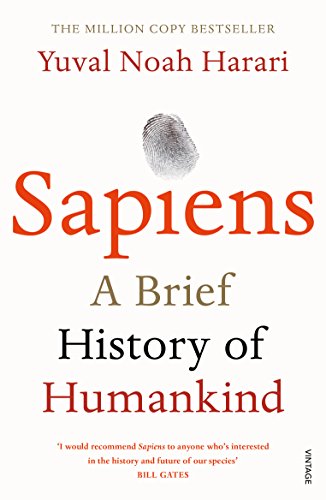I recently reread Sapiens by Yuval Noah Harari. It is one of the few books that I've ever read more than once. If you've not read it, I would definitely recommend it.
Yuval Noah Harari's bestselling book, Sapiens: A Brief History of Humankind, presents a sweeping narrative of human history from the Stone Age to the present day, identifying three major revolutions that shaped our species and the world as we know it: the Cognitive Revolution, the Agricultural Revolution, and the Scientific Revolution. Harari's work synthesises history, biology, and economics to challenge conventional narratives and offer provocative insights into the nature of humanity.
The Cognitive Revolution: The Power of Fiction
At the heart of Harari's thesis is the Cognitive Revolution, which occurred roughly 70,000 years ago. This period was characterised by the development of new cognitive abilities in Homo sapiens, most notably the capacity for abstract thought and communication through a unique and flexible language. This allowed humans to create and believe in "fictions" or "imagined realities" – concepts that have no material existence, such as gods, nations, laws, money, and human rights.
This ability to construct and share myths and stories enabled Sapiens to cooperate in large numbers and with unprecedented flexibility. While other species' social behaviour is largely determined by genetics, humans could rewrite their social structures and collaborations by changing their shared beliefs. This cooperative power, Harari argues, is what allowed Sapiens to outcompete other human species, like the Neanderthals, and eventually dominate the planet.

